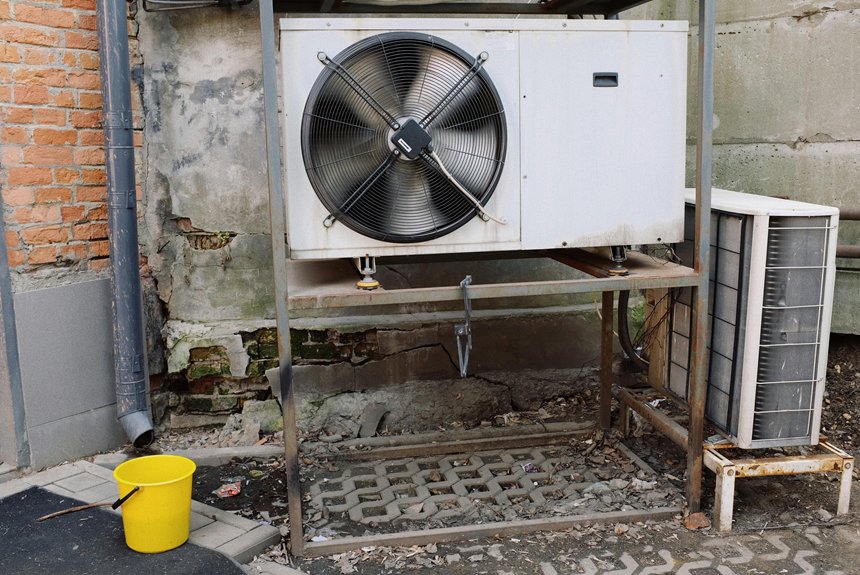The cost of an air conditioner can vary significantly depending on factors such as the type of system, its size, and the brand. Central units often come with higher expenses due to installation requirements. In contrast, window and portable units are typically more affordable and simpler to install.
Opting for high-efficiency models may involve a greater initial investment, but they can lead to savings in the long run through reduced energy bills. Selecting the most suitable system is crucial and should consider individual needs as well as budget constraints. By exploring various options, you can identify the best fit for your home or workspace.
Understanding the different types of air conditioning systems available can assist in making informed decisions and ultimately lead to a more comfortable environment.
Factors Influencing Air Conditioner Pricing
Several key factors influence the pricing of air conditioners in the UK, and understanding these can assist consumers in making informed choices.
One significant factor is the size and capacity of the unit. Larger air conditioning systems that can effectively cool more expansive spaces tend to command higher prices, as they require more materials and advanced components.
Brand reputation and quality also play a crucial role; well-established brands known for their reliability and superior performance typically come with a premium price tag due to their better warranties and customer service.
Installation costs can further add to the total expense, particularly if modifications to ductwork or electrical systems are necessary.
Energy efficiency is another critical consideration. While more energy-efficient units may have a higher upfront cost, they can lead to substantial savings on energy bills over time.
Additionally, market conditions such as inflation, supply chain complexities, and increasing material costs also impact pricing. Supply chain disruptions have been particularly prominent, leading to delays and higher prices for essential components.
Therefore, it’s essential for buyers to weigh both their immediate budget and potential long-term savings when selecting an air conditioning system.
Types of Air Conditioning Systems and Associated Costs
Different types of air conditioning systems vary significantly in their design, installation requirements, and associated costs. Central air systems utilise ductwork to cool the entire home, providing uniform comfort and a lifespan of at least a decade. However, the installation can be quite costly. Ductless mini-split systems offer zone-specific control and are relatively easy to install, making them particularly beneficial for homes without existing ductwork. The costs per indoor unit can be on the higher side. Window units are an affordable option, easy to install, and typically range in price, but they tend to be less efficient and can produce noticeable noise. Portable air conditioners provide flexibility and are suitable for temporary cooling solutions. However, they generally have less power compared to other systems. Packaged systems combine all components into a single outdoor unit and are primarily used in larger buildings, often leading to higher overall costs. When considering which air conditioning system to choose, it’s essential to weigh the benefits and drawbacks of each option according to your specific needs and budget. Energy efficiency can vary considerably between models, influencing long-term operational costs.
Long-Term Benefits and Incentives for Upgrading
Upgrading to a more energy-efficient air conditioning system offers significant long-term advantages that can make the investment worthwhile. New models consume less electricity, resulting in substantial savings on cooling costs over time. Energy efficiency ratings, such as EER and SEER, are key indicators of a unit’s performance, and choosing higher-rated models can lead to greater savings.
Energy-efficient units typically use considerably less energy than older models, leading to savings of hundreds of pounds over the years. These savings become especially meaningful when energy prices remain stable or increase.
Moreover, many local councils and utility providers in the UK offer rebates and incentives for selecting ENERGY STAR-rated systems, which can help to lower initial expenses.
Contemporary units also enhance comfort with precise temperature control and improved humidity management, which can extend the lifespan of the system and reduce maintenance costs.
Conclusion
Understanding the factors that influence air conditioner costs is essential for homeowners in the UK who wish to make informed decisions. Various types of systems are available, each coming with its own price range. Considering long-term benefits can help justify the initial outlay, as energy efficiency may lead to considerable savings over time.
Incentives for energy-efficient models and potential savings on utility bills can further lessen the overall financial burden. By carefully evaluating these elements, consumers can choose an air conditioning system that strikes a balance between affordability and efficiency, ensuring comfort without excessive expenditure.
Ultimately, making the right selection leads to enhanced satisfaction and value in the long run.

